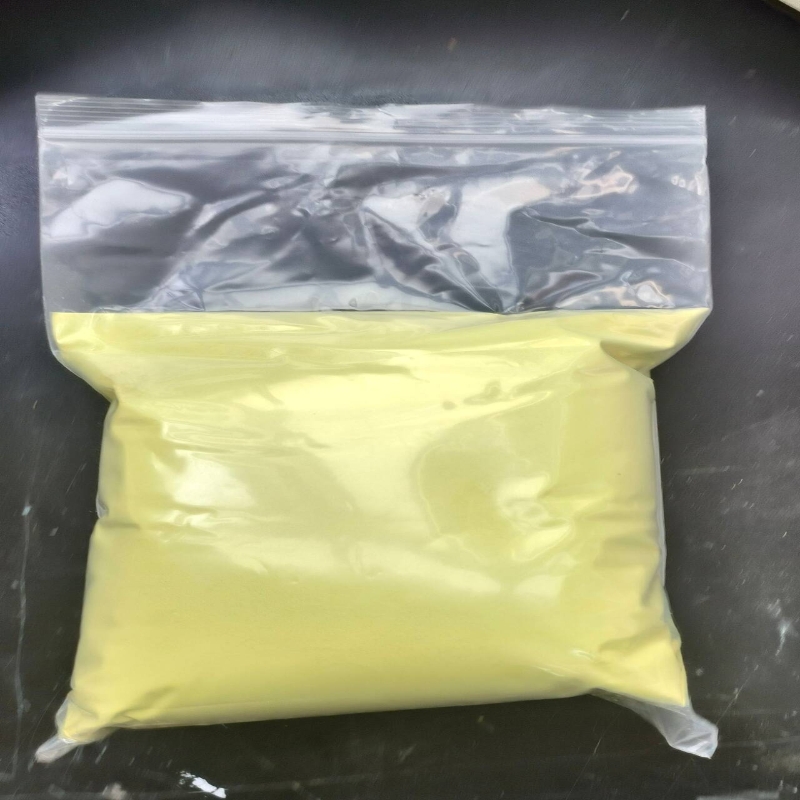-
Categories
-
Pharmaceutical Intermediates
-
Active Pharmaceutical Ingredients
-
Food Additives
- Industrial Coatings
- Agrochemicals
- Dyes and Pigments
- Surfactant
- Flavors and Fragrances
- Chemical Reagents
- Catalyst and Auxiliary
- Natural Products
- Inorganic Chemistry
-
Organic Chemistry
-
Biochemical Engineering
- Analytical Chemistry
- Cosmetic Ingredient
-
Pharmaceutical Intermediates
Promotion
ECHEMI Mall
Wholesale
Weekly Price
Exhibition
News
-
Trade Service
Today, the FDA announced the withdrawal of the Emergency Use Authorization (EUA) for the treatment of COVID-19 patientsIn its withdrawal letter, the FDA said: Just as the U.SOffice of Advanced Biomedical Research and Development (BARDA) had earlier applied for the EUA to be awarded for chloroquine/hydroxychloroquine, BARDA is now applying to withdraw the EUA as part of an interagency u.Scollaborative effort to respond quickly to the evolving public health emergency of COVID-19Today's withdrawal request is based on new information, including clinical trial data, that led BARDA to conclude that the drug may be ineffective in the treatment of COVID-19 and that the potential benefits of the drug for such use do not exceed its known and potential risksis a high-profile treatment of chloroquine/hydroxychloroquine among the many candidates for THE treatment of COVID-19Chloroquine/hydroxychloroquine has been approved for the treatment and prevention of malariaThey are also approved for treatment of autoimmune diseases, including lupus and rheumatoid arthritisIn the early stage of the outbreak of the new crown, chloroquine showed the ability to inhibit the proliferation of the new coronavirus in in vitro testingSubsequently, in some small clinical studies, patients with COVID-19 treated with chloroquine/hydroxychloroquine showed improved clinical symptomsThe FDA also awarded chloroquine/hydroxychloroquine EUA on March 28 this year for the treatment of patients with COVID-19So, what is the reason why the FDA is withdrawing the EUA today?in the FDA's letter to withdraw the EUA, the FDA details four main reasons:FDA clinical pharmacologists compared the EC50 concentrationrequired to inhibit the growth of the virus in in vitro studies with the concentration of drugs that patients can achieve in the plasma after taking the drugThe results showed that the concentration of chloroquine/hydroxychloroquine in the patient's plasma was much lower than the EC50/EC90 value in the in vitro test, as described in EUAThis means that taking this dose of chloroquine/hydroxychloroquine may not have an antiviral effectMoreover, due to concerns about toxic side effects, it is not possible to significantly increase the dose of the drug to improve the antiviral effectthe FDA's evaluation of the effects of chloroquine/hydroxychloroquine on viral sheddingAccording to the reviewers, the highest quality data was a random open-label study of 150 inpatients published in BMJUsing RT-PCR, the study tested the number of viruses in upper and lower respiratory samples at different points after receiving chloroquine/hydroxychloroquine, or standard therapyThe results showed that the time for RT-PCR results in patients treated with chloroquine/hydroxychloroquine did not improvesample sizes from other studies were small, and the effects of chloroquine/hydroxychloroquine treatment on viral shedding did not produce consistent resultsAt the time of the FDA's issuance of THE EUA, the United States had not issued a treatment guideline for COIVD-19However, following the release of the EUA, the American Society of Infectious Diseases, in its COVID-19 treatment guidelines issued on April 11, noted that the evidence for supporting chloroquine/hydroxychloroquine treatment of COVID-19 outside clinical trials is very lowThe National Institutes of Health (NIH) is not recommended for treating COVID-19 patients outside of clinical trials in guidelines updated on June 11Therefore, current U.Streatment guidelines do not recommend that chloroquine/hydroxychloroquine treat hospitalized COVID-19 patients outside of clinical trialsRECOVERY clinical trial is a large clinical trial conducted by Oxford University in the UK in collaboration with other foundations and the UK governmentOn June 5, the lead researcher in the clinical trial announced the discontinuation of the trial portion of the treatment of COVID-19 patients with hydroxychloroquine due to a lack of clinical benefitsBy the time the trial ended, 1,542 patients had been randomly treated with hydroxychloroquine and 3,132 had received routine treatmentThe mortality rates of the hydroxychloroquine group and the control group were 25.7% and 23.5% respectively (HR 1.11, 95% CI, 0.98-1.26, p -0.10)Moreover, no other clinical benefits were found for patientsThe FDA said that while the clinical trial was open-labeled, the clinical endpoint of mortality was relatively less subjectively affected only randomized controlled trials can effectively answer the question of the effectiveness of chloroquine/hydroxychloroquine in the treatment of hospitalized COVID-19 patients The results of the RECOVERY clinical trial provide strong evidence that hydroxychloroquine is not beneficial in the treatment of inpatients In addition, searches of the U.S FAERS database and published literature, as well as other databases, showed that as of May 6 this year, a total of 347 cases of hydroxychloroquine-related and 38 cases of chloroquine-related adverse events were reported, including 109 cases of severe cardiovascular adverse events and 113 cases of severe non-cardiovascular adverse events But because it's hard to determine how many people use chloroquine/hydroxychloroquine, researchers can't measure the chance of adverse events The FDA issued a safety newsletter on April 24 warning of serious heart rhythm problems that can cause severe cardiovascular adverse events that can lead to death "In the course of this public health crisis, we have made it clear that our decisions are scientifically guided and that as understanding of the new crown virus increases and the latest data emerges, our decisions will evolve." Dr Anand Shah, FDA's Deputy Commissioner for Medical and Scientific Affairs, said, "The FDA has been making decisions based on the most reliable, high-quality and up-to-date evidence We will continue to review all EUAs issued by the FDA and make appropriate changes based on emerging evidence "
today, the FDA also revised its recommendations for the use of antiviral therapy Redsivir, stating in the emergency use authorization instructions provided to health care professionals that it is not recommended to combine Redsivir and chloroquine/hydroxychloroquine at the same time Because just-concluded preclinical studies have found that there may be potential drug interactions between Redsivir and chloroquine/hydroxychloroquine Chloroquine/hydroxychloroquine may weaken the intracellular metabolic activation process and antiviral activity of Redsewe The FDA has not yet observed a decrease in antiviral activity in clinical trials, but it will continue to evaluate all data related to Redsewe




![2-(Hydroxymethyl)benzo[b]thiophene](https://file.echemi.com/fileManage/upload/cas/593/e79a972f-b55d-4dc1-9113-841c417e0a89.png)


